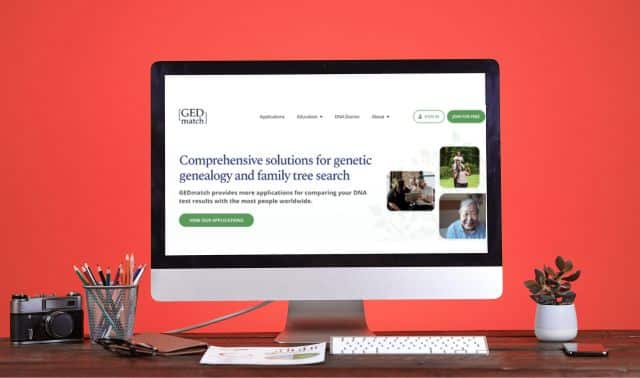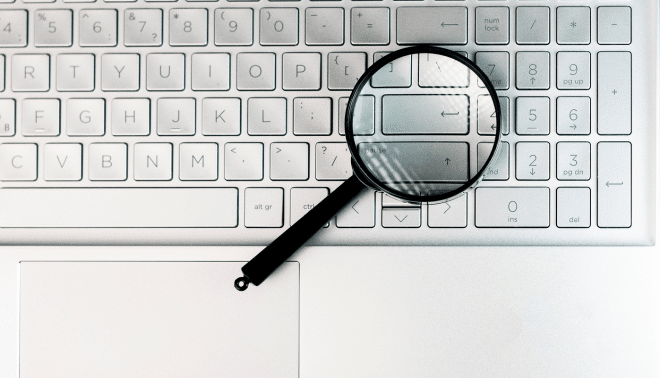Sign up for the Family Tree Newsletter! Plus, you’ll receive our 10 Essential Genealogy Research Forms PDF as a special thank you.
Get Your Free Genealogy Forms
"*" indicates required fields

A little over a year ago, Patricia Walling asked her first cousin to take an autosomal DNA test. She couldn’t find much information about their shared grandfather, Tom Williams, and hoped genetics would point the way. But an unexpected DNA discovery suggested otherwise: They didn’t share enough DNA to be first cousins, but rather half-cousins. They matched on Walling’s grandmother’s side, but the evidence suggested they had different grandfathers. Walling set out to better understand this DNA mystery.
Using DNA and documents
To begin, Walling looked through her unidentified DNA matches on AncestryDNA. “I found common names of Johnson and Morris in all of them,” she says. “I created a tree and mapped all of them to the centimorgan count as they related to me. It became obvious that this was the line for my mother’s biological father.”
After she found a marriage between a Johnson and a Morris, Walling set out to connect the dots. Her mother, Ellen, was born in Denver in 1923. Census records showed that only a handful of male Johnsons lived in Denver at the time, most of them too old to serve as partners to her 22-year-old grandmother. But one—a 20-year-old living a few blocks away from her—fit the bill.
He also fit perfectly into her DNA tree model, and Walling found one of his still-living sons through the site. “He was shocked but not very surprised, as he knew his father to [have been] a ‘little wild’ in his youth,” she said. The potential father was an auto-painter at the time, and Tom Williams ran his own auto-painting shop in a garage behind his home. “So my assumption is that Johnson was working for Grandpa Tom. It was certainly convenient to be working behind my grandmother’s house.”
That seemed to settle the issue. Supposedly Johnson’s son has taken a DNA test (another valuable point of data), but Walling hasn’t seen results yet. “I realize that this is circumstantial evidence, but there certainly isn’t a paper trail,” she says. “I will never know if my grandmother knew for sure [who the father was], or that she ever shared the possibility with anyone.”
The story doesn’t end there, however. Walling’s Grandpa Williams committed suicide when Ellen was just 7 years old. Walling and her cousin heard different stories about the suicide. According to a local newspaper, Williams attempted suicide multiple times. But Walling has a theory about what may have led him there. “My guess is that my grandparents got into a fight and she could have snapped at him,” she says. During the argument, her grandmother may have hinted that Ellen wasn’t even his daughter. “That could easily push someone over the edge,” Walling says.
Taking in the news
Walling admits the DNA discovery had a serious emotional impact on her. She was at the RootsTech conference when she received an email with her cousin’s DNA results. “Of course, my initial reaction was shock and surprise,” she says. “Since my mother has died, my first personal feeling of loss was that my cousins, who I spent my entire childhood with, were only half-cousins and I felt betrayal. I was angry at my deceased grandmother. I was just plain angry at my loss!”
She immediately called her siblings and cousins. “It was cathartic,” says Walling. “We each spent hours talking about our feelings and finding answers to questions that had plagued each of us over the years.” They compared notes about their grandmother’s behavior and how it affected her children and grandchildren, and traded theories about why an affair may have taken place.
“In the end, we laughed,” Walling says. “We had no way of answering those questions. Our relationship as cousins would not change. We grew up as cousins and we would remain cousins. We are family. I still have nagging questions that can’t be answered, but it’s okay.
“I’m at peace that someday I will know or it won’t matter. My heart still aches for my mother and the struggles she went through, but her mortal life is over. I’m discovering a whole new family and it’s exciting when a DNA cousin sends me a happy note that we are cousins.”
She also admits feeling another initial loss, having researched the Williams line for the past 20 years. “I love these people…I know these ancestors well,” she says. “Then I realized that I just was adding a new line, not throwing one away.”
Note: The names in this story have been changed to respect privacy.




